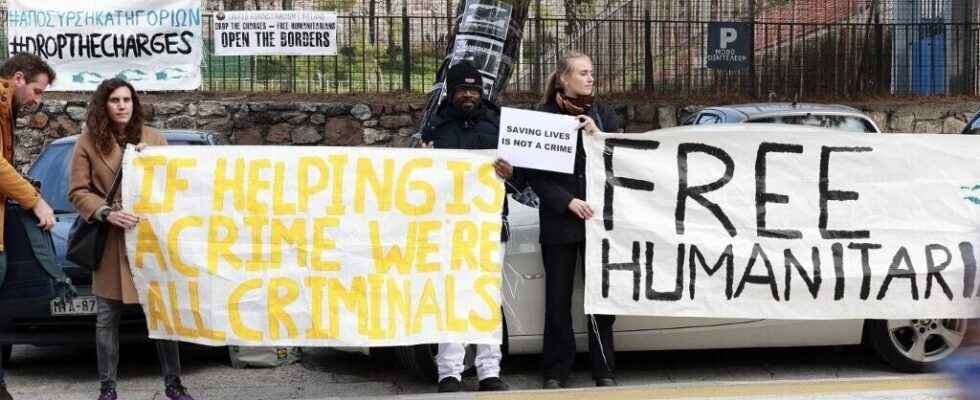In the trial of 24 aid workers which started earlier this week, the Lesbos court has ended all espionage charges due to procedural flaws. This decision puts an end to a very political trial, denounced in particular by the UN and many NGOs.
With our correspondent in Athens, Joel Bronner
For the European Parliament, the trial which has just ended on the Greek island of Lesbos is part of ” the biggest case of criminalization of solidarity in Europe “.
Among the accused indeed, many have never had the shoulders suited to the colossal burdens that the Greek state has imposed on them, notably via accusations of espionage. Like Sarah Mardini, a Syrian refugee whose story has been honored by the Netflix platform, Sean Binder, a young German diver who dreams of becoming a lawyer, or Pieter Wittenberg, a retired Dutch banker, who asked again this week what state secret he could possibly know.
Especially since their NGO, ERCI, which came to the aid of asylum seekers in distress at sea, openly collaborated at the material time, between 2016 and 2018, with the Greek coast guard.
For the defenders of the humanitarians prosecuted, the case is heard, it was for the Greek State, via these accusations, to regain control of the maritime border area with Turkey by getting rid of the presence of NGOs. A legal tactic that paid off.
All of the legal proceedings against them by the Greek courts are not over, however, the same humanitarian workers still being prosecuted, in a separate procedure where the investigation is still ongoing, for human trafficking.
